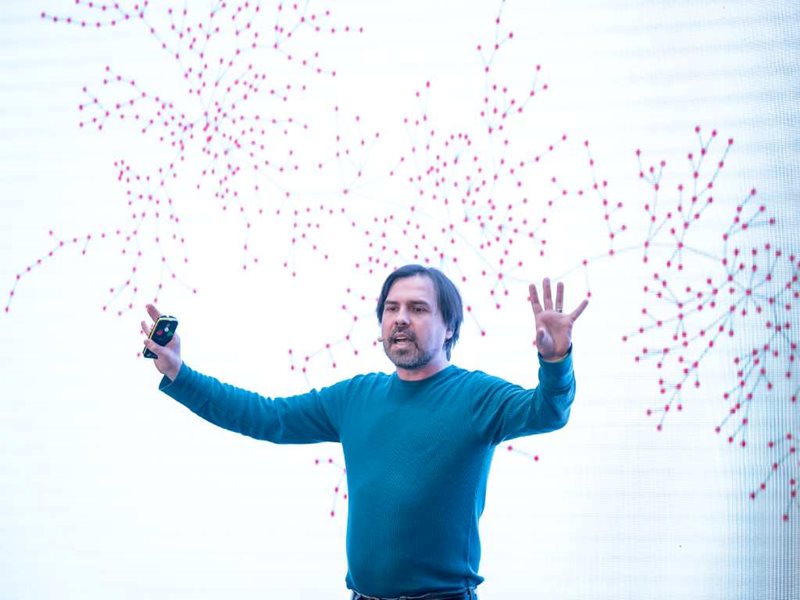The aim is to become Europe’s leading data science centre
_20240301121917_0.jpg)
The Centre for Collective Learning, led by one of the world’s foremost international researchers in data science, César Hidalgo, was launched at Corvinus a year ago. The data scientist recalled that from his first day in his office he had a view of the construction of the Gellért Campus, which he said symbolised the University’s goal: to establish a modern, innovative, internationally leading educational and research institution.
Hidalgo said that the first year of the Centre for Collective Learning has been largely spent setting up the research team and laying the foundations for their operations, but they have also published several important international papers on topics such as economic development, artificial intelligence and human perception of machine learning. The main activity of the Centre is the data-driven examination of the spatial and temporal organisation of knowledge, the complexity of the economy, and the development of artificial intelligence. In recent months, three small research groups have been set up within the Centre for Collective Learning, called Computational Inequalities, the Organizational Dynamics Group and the Collective Learning Group.

The common starting point for the various research projects carried out at the Centre is the use of large datasets, which, when analysed and visualised using appropriate tools, enable researchers to outline complex narratives and trends. During his lecture, Hidalgo presented one such platform developed at the Massachusetts Institute of Technology (MIT), called the Observatory of Economic Complexity. The OEC is an online platform that contains and visualises vast amounts of data on the economic activities and geography of countries around the world, and is used in the private sector, the public sector and the academic world. It can be used, for example, to gain an overview of how the focus of industrial production has changed in various European countries from the 1990s to the present day. An important metric for the performance of countries is the Economic Complexity Index (ECI) developed by researchers, along with its counterpart, the Product Complexity Index (PCI), which refers to products. With these, it is possible to determine the relative knowledge intensity of an economy or a product. From the trade, patent, and research publication data of individual countries, estimates regarding the future economic complexity of countries also emerge. According to César Hidalgo, these three complexity metrics better explain future economic growth than trade complexity metrics alone. The researcher also added that data alone is insufficient; appropriate visual representation is necessary for the human brain to effectively comprehend and interpret the metrics. This is why he considers it important to develop various data visualisation tools, which will also be an important part of the work of the Centre for Collective Learning in the coming years.
The Centre for Collective Learning, based in Toulouse and now also in Hungary, within the Corvinus Institute for Advanced Studies, was awarded a five-year ERA Chair grant to start its operations in January 2023. Speaking about future plans, Hidalgo stated that in the coming years, he and his colleagues will work towards transforming the Centre for Collective Learning into the European research hub for data sciences.